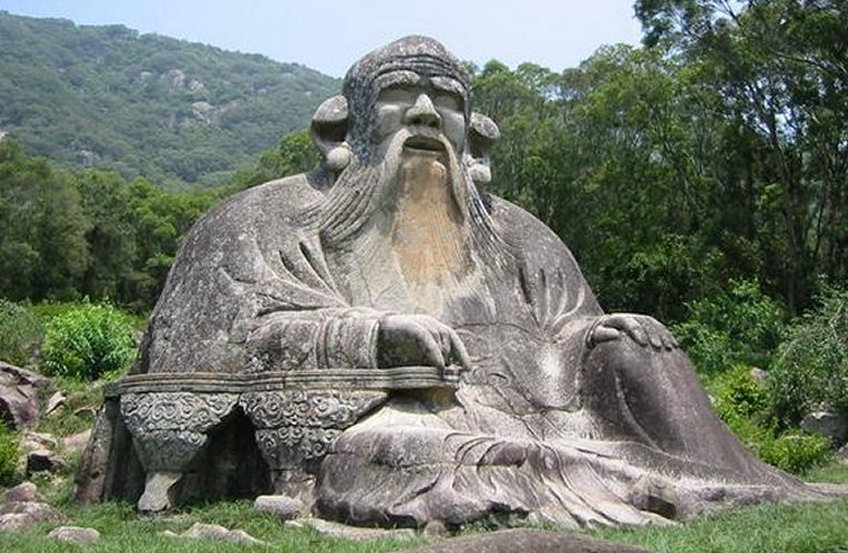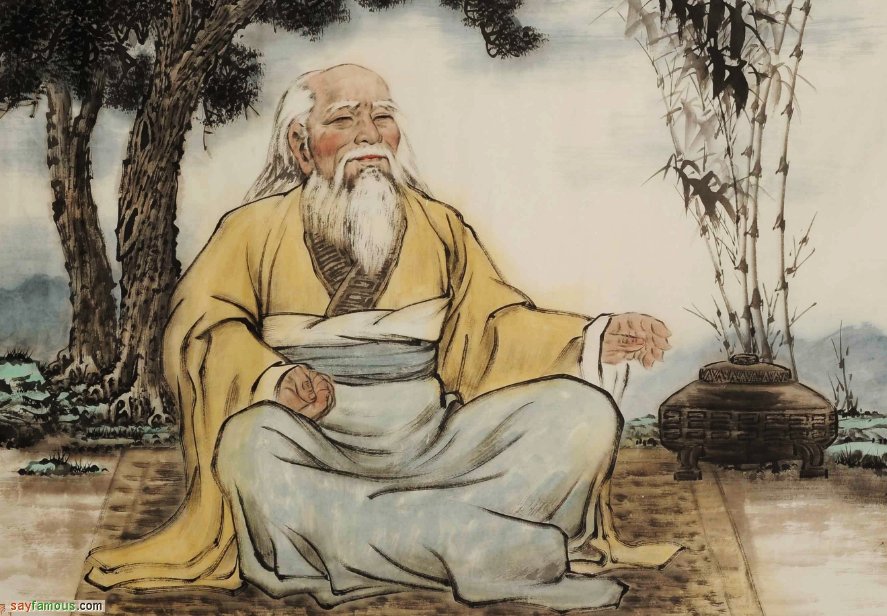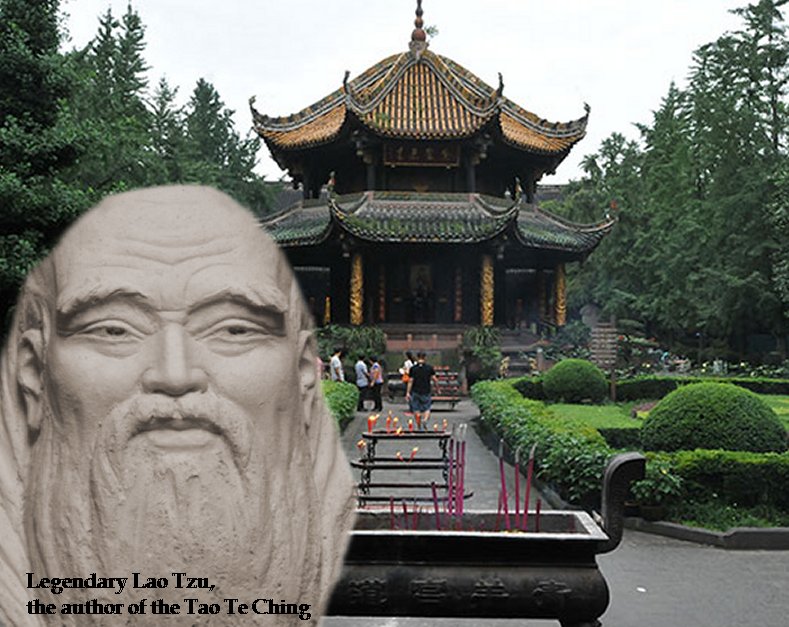Lao Tzu: Legendary Thinker And Founder Of Taoism Who Advocated Modesty, Self-Restraint And Balance
A. Sutherland - AncientPages.com - Lao Tzu (Laozi or Lao-tze), known as the Old Master, was an ancient Chinese philosopher, almighty sage, creator of Taoism and author of the ‘Tao Te Ching’ (Daodejing), one of the most important books of Taoism, both religious and philosophical.
‘Tao Te Ching’, is a Chinese classic text traditionally credited to the 6th-century BC; the work of a source of inspiration that inspired many artists including poets, painters, calligraphers, and gardeners.
The period of life of this legendary figure is typically dated to the sixth century BC, which means that Lao Tzu was contemporary with Confucius. One legend claims he was an older contemporary of Confucius, who supposedly left an account of meeting Lao Tzu, in which Confucius likened Lao Tzu’s mysterious presence to that of a dragon.
Lao Tzu's greatest legacy given to the Taoists is the knowledge of immortality, the path to the practical achievement of immortality. In folk beliefs, he is considered the patron saint of spellcasters, blacksmiths, jewelers, grinders, and craftsmen.
No doubt, Lao Tzu is a central figure in Chinese culture and many legends are related to this remarkable personality. Along with the creation of Taoism, Lao Tzu was considered a cosmic and divine being.
Legends About Lao Tzu Appeared Much Later
Legends surround this remarkable and highly mysterious figure from the distant past. In his fascinating book “Lost Cities of China, Central Asia and India”, David Hatcher Childress writes that “the great Chinese philosopher, Lao Tzu, often talked of the "Ancient Ones" in his writings, much as Confucius did.
“They were wise and knowledgeable, human beings that were as Gods- powerful, good, loving, and all-knowing…. When he finally left China, at the close of his very long life, he journeyed to the west, to the legendary land of Hsi Wang Mu, which may have been the headquarters of the "Ancient Ones," the Great White Brotherhood…”
Other legends reveal that Lao Tzu (in some versions after his death), traveled across the Himalayas, came to India, where he became a teacher of Gautama Buddha (or even his father). Such views are not supported by Buddhists, however, and in their historical records, there is no evidence, or even clues, pointing to Lao Tzu as Buddha's teacher.
Later, during the Han Dynasty (206 BC - 220 AD), Lao Tzu began to be seen as a deity. Since then, he has been portrayed as immortal who achieved superhuman powers thanks to appropriate exercises.
Life Of Lao Tzu
There are several fanciful stories about Lao Tzu but there is no definitive evidence that Lao Tzu himself ever existed. Lao Tzu is a mysterious and legendary figure. He is reputed to have said once that "As for the sage, no one will ever know whether he existed or not."
All the information we possess about him is highly inconclusive, so he is lost in the mists of early Chinese history. In one version of his story, he was born on September 14, 604 BC in the kingdom of Ch’u, after being conceived by a falling star, or from solar energy collected in a five-color pearl swallowed by his mother). After spending 62 years in her womb, he finally appeared as a silver-haired sage who began to make philosophical pronouncements.
Chengdu Qingyang Gong, a famous Taoist temple in southern China, the birthplace of Taoism, and an important center of Taoist studies. According to legend, this is the place where Lao Tzu, the author of the Tao Te Ching descended from the heavens. Source
In another, he was born to a cultural family living at K'uhsien in 571 BC. He became the keeper of the imperial archives and this occupation allowed him to spend much time developing his philosophical ideas.
Lao Tzu Decided To Leave China
Some time in the middle to his late life, Lao Tzu became deeply disappointed with society and decided to leave. He mounted a water buffalo to ride west toward Tibet, where he would live in solitude. As he was leaving at one of the border posts of China, a gatekeeper tried to talk him out of becoming a hermit in his old age and asked him to turn back to his people. Lao Tzu refused.
The gatekeeper then persuaded him to at least write down his thoughts before he abandoned civilization, and this Lao Tzu agreed to do.
After three days, he returned to the gatekeeper with a small book, the Tao Te Ching (“The Way and Its Power”), containing 81 poems about virtue and the way, originally written in Chinese. The entire text includes between 5227 and 5722 Chinese characters. Thus, Lao Tzu's wisdom was not lost.
Then, the sage was free to pass beyond the gate. He went on to unknown destinies and was never heard from again. Other sources say that the Old Master did not leave China at all, and his grave is in his native village, now called Luyi, where his mother is also buried.
The exact time and place of his death remain unknown.
Lao Tzu Was Not A Preacher
Lao Tzu preached to no one and he did not collect followers in his lifetime. He lived quietly and discreetly almost his entire long life of more than 80 years and ultimately turned his back on society to live a simple life of peace and contemplation.
He avoided fame, lived in isolation. He was modest, gentle and he was not interested in honors and riches.
The whole collective image of Lao Tzu, the Chinese philosopher is filled with symbolism. In Taoist legends, Lao Tzu represents the embodiment of wisdom and contemplative beginnings.
There are memorable places of Lao Tzu, revered by Taoists. For example, Terrace Louguan is the most ancient cult complex where Taoism originated. Another sacred place for Taoists is Mount Laoshan with Taoist ancient temples, located on its slopes. The famous monument of Lao Tzu is located in Fusham, China.
To everyone he met on his way, the sage said exactly the same: Be yourself, do your part. He set natural law above law. He preferred a simple and peaceful life without rules and any restrictions.
Written by – A. Sutherland - AncientPages.com Senior Staff Writer
Copyright © AncientPages.com All rights reserved. This material may not be published, broadcast, rewritten or redistributed in whole or part without the express written permission of AncientPages.com
Expand for referencesMore From Ancient Pages
-
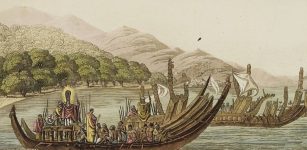 Binary System Was Used By Ancient Polynesians 1,000 Years Before The Concept Of A Computer Was Introduced
Ancient Technology | Feb 3, 2015
Binary System Was Used By Ancient Polynesians 1,000 Years Before The Concept Of A Computer Was Introduced
Ancient Technology | Feb 3, 2015 -
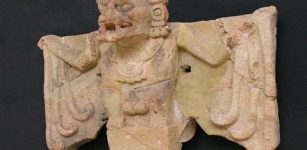 Camazotz: ‘Death Bat’ Vampire God In Ancient Maya Beliefs
Featured Stories | Jun 8, 2017
Camazotz: ‘Death Bat’ Vampire God In Ancient Maya Beliefs
Featured Stories | Jun 8, 2017 -
 Unusual Ancient Human Bones Found In A Grave In Derbyshire – Burial Place Of A Legendary Person?
Featured Stories | Apr 24, 2024
Unusual Ancient Human Bones Found In A Grave In Derbyshire – Burial Place Of A Legendary Person?
Featured Stories | Apr 24, 2024 -
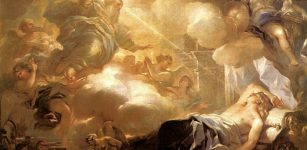 King Solomon’s Magical Shamir Could Cut Through Any Stone – Proof Of Advanced Ancient Technology?
Featured Stories | Aug 23, 2018
King Solomon’s Magical Shamir Could Cut Through Any Stone – Proof Of Advanced Ancient Technology?
Featured Stories | Aug 23, 2018 -
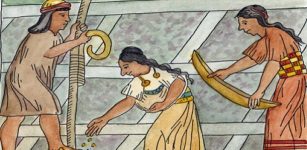 Why Was Ayllu Very Important For The Inca People?
Ancient History Facts | Feb 19, 2019
Why Was Ayllu Very Important For The Inca People?
Ancient History Facts | Feb 19, 2019 -
 Sacred Number Four – Perfect Number And Deep Meaning Behind It
Ancient Symbols | Nov 7, 2017
Sacred Number Four – Perfect Number And Deep Meaning Behind It
Ancient Symbols | Nov 7, 2017 -
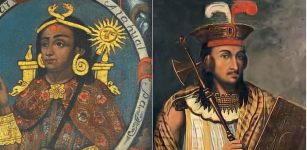 Mystery Of The Lost Golden Chain Of Huayna Capac: Will The Ancient Inca Treasure Ever Be Found?
Artifacts | Dec 30, 2020
Mystery Of The Lost Golden Chain Of Huayna Capac: Will The Ancient Inca Treasure Ever Be Found?
Artifacts | Dec 30, 2020 -
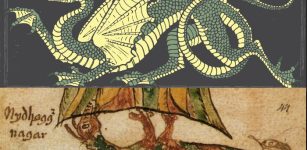 Nidhogg – Dreadful Winged Corpse-Eating Dragon Who Is Enemy Of Asgard And Yggdrasil Tree
Featured Stories | May 9, 2020
Nidhogg – Dreadful Winged Corpse-Eating Dragon Who Is Enemy Of Asgard And Yggdrasil Tree
Featured Stories | May 9, 2020 -
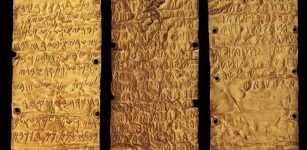 Pyrgi Gold Tablets: A Rare Ancient Bilingual Treasure
Artifacts | Nov 23, 2018
Pyrgi Gold Tablets: A Rare Ancient Bilingual Treasure
Artifacts | Nov 23, 2018 -
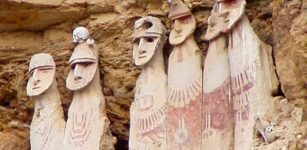 Mysterious Sarcophagi Belonging To The Chachapoyas The Cloud Warriors
Archaeology | Mar 4, 2014
Mysterious Sarcophagi Belonging To The Chachapoyas The Cloud Warriors
Archaeology | Mar 4, 2014 -
 Biblical Mysteries – Foods And Drinks That Gave Extraordinary Powers, Knowledge And Immortality
Ancient Mysteries | Mar 22, 2017
Biblical Mysteries – Foods And Drinks That Gave Extraordinary Powers, Knowledge And Immortality
Ancient Mysteries | Mar 22, 2017 -
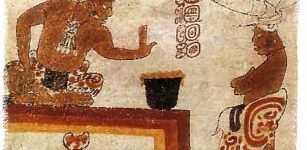 Chocolate Was Invented In Mesoamerica 1900 B.C.
Ancient History Facts | Jan 17, 2016
Chocolate Was Invented In Mesoamerica 1900 B.C.
Ancient History Facts | Jan 17, 2016 -
 Mystery Of King Solomon’s Mines: An Unsolved Ancient Enigma
Featured Stories | Aug 9, 2018
Mystery Of King Solomon’s Mines: An Unsolved Ancient Enigma
Featured Stories | Aug 9, 2018 -
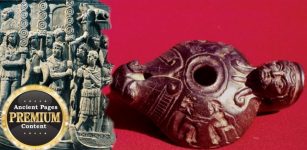 Mysterious Ancient Oil Lamps In Ohio And Wisconsin – Evidence Of Pre-Columbian Contact?
Ancient Mysteries | Dec 20, 2017
Mysterious Ancient Oil Lamps In Ohio And Wisconsin – Evidence Of Pre-Columbian Contact?
Ancient Mysteries | Dec 20, 2017 -
 Mysterious Disappearance Of Louis Le Prince – Murder And Cover-Up?
Featured Stories | Jun 27, 2020
Mysterious Disappearance Of Louis Le Prince – Murder And Cover-Up?
Featured Stories | Jun 27, 2020 -
 Did Our Ancestors Know About Artificial Intelligence?
Ancient Technology | Sep 2, 2015
Did Our Ancestors Know About Artificial Intelligence?
Ancient Technology | Sep 2, 2015 -
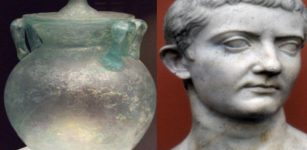 Flexible Glass – Lost Ancient Roman Invention Because Glassmaker Was Beheaded By Emperor Tiberius
Ancient Technology | Jul 27, 2023
Flexible Glass – Lost Ancient Roman Invention Because Glassmaker Was Beheaded By Emperor Tiberius
Ancient Technology | Jul 27, 2023 -
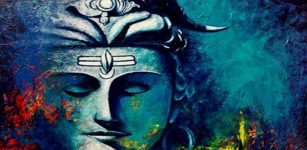 How Did Hindu God Shiva Get His Third Eye?
Featured Stories | May 13, 2019
How Did Hindu God Shiva Get His Third Eye?
Featured Stories | May 13, 2019 -
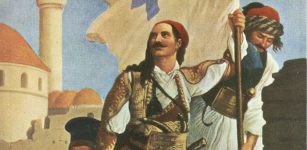 Horrible Ancient Massacre On The Island Of Chios Led To Greek Independence
Featured Stories | Jun 29, 2018
Horrible Ancient Massacre On The Island Of Chios Led To Greek Independence
Featured Stories | Jun 29, 2018 -
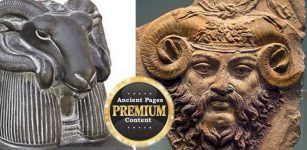 The Enigma Of People And Gods With Horns In Ancient Times
Ancient Mysteries | Nov 7, 2015
The Enigma Of People And Gods With Horns In Ancient Times
Ancient Mysteries | Nov 7, 2015

